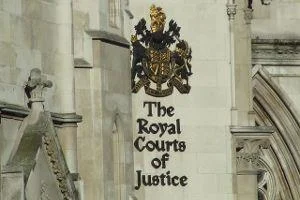The UK's largest and most visited divorce site.
Modern, convenient and affordable services.
We've helped over 1 million people since 2007.
- Library Home

- FAQs
FAQs
Many couples do not make any changes to their banking arrangements until financial negotiations are well advanced.
But if there is a risk that large sums may be drawn out - or if there is a risk that credit or charge cards may be used inappropriately - then it may be safer to take action to prevent this.
The danger is that if an account or credit card is suddenly frozen, solicitors may be involved immediately to ask for maintenance arrangements to be set up - perhaps through the courts. This may be an unforeseen and costly consequence.
Much depends on whether you can trust each other enough to leave things as they are. If you need to rearrange the accounts on separation we recommend that you try to agree those changes first. Think about mediation.
You may have read in the papers about 'big money' cases - where the assets available for division clearly exceed the parties' needs - have focused on the concept of equality of outcome. Contributions to the running of the home and the bringing up of children are valued equally by the court on divorce to contributions made by earned income. There may be other considerations -
Financial disclosure is achieved by simultaneously exchanging a document called Form E. This must be done at least 35 days before the First Appointment. Whether disclosure is made during amicable and voluntary negotiations or as part of the Court process, the sort of information that has to be disclosed is as follows (although this list is not exhaustive).
This is a payment made out of income by one spouse to provide for the other and frequently is called maintenance. It is payable by reference to a period and very often is a monthly payment. A spousal maintenance Order can be open-ended or can be limited in duration. If the party receiving the maintenance remarries (or enters into a registered civil partnership for a same sex couple) or dies it automatically ceases. It is an ongoing continuing obligation and therefore there is not a “clean break” (see later) if maintenance payments are being made under an order. It can be varied (either as to the amount payable or the duration of it) in the future if the financial or other circumstances of one or both parties change significantly. On an application for variation the Court has power to fix a lump sum and order the payer to pay it as capitalised maintenance and terminate the periodical payment order. The maintenance payments can be “secured" against an asset of the party making the payments although these types of Orders (thus known as secured periodical payments orders) are rare.
You would need to request the court to allow the court bailiff to personally serve the divorce documents on the respondent. The court bailiff would then swear an affidavit confirming service, should the respondent still not respond you proceed to the next stage, the application for special procedure whereby you would use the sworn affidavit as an exhibit. You will have to pay the court a fixed fee for this service. After service you must allow 29 days for the respondent to file a defence (called an ‘answer’ in divorce proceedings) and, if they do not, you can then apply for the decree nisi (the first divorce decree).
Yes, providing 3 months have elapsed and the parties have not reconciled.
Yes, provided one party is either domiciled or habitually resident (for a year) in England and Wales.
In English Law, everyone has a right to defend any action brought against him/her in the court. Defended divorces are relatively rare because they are (a) unlikely to bring the marriage together again and (b) most importantly are very expensive with the loser paying the other party’s costs. Usually, once a petition is issued at court, the other party (with good solid advice) will not defend it.
Attempt to find out from family & friends. Alternatively, a tracing agent may be able to trace the party’s whereabouts.
Irretrievable breakdown of marriage is the only grounds for divorce. You must prove irretrievable breakdown in one of five different ways. These are:
- adultery
- unreasonable behavior (often described as cruelty)
- desertion for two years
- separation for two years where the other party consents
- separation for five years (no consent needed)
We can help you to get a fair financial settlement.
Negotiate a fair deal from £299

Helping you negotiate a fair financial settlement with your spouse (or their solicitor) without going to court.
Financial Mediation from £399

Financial mediation is a convenient and inexpensive way to agree on a fair financial settlement.
Consent Orders from £950

This legally binding agreement defines how assets (e.g. properties and pensions) are to be divided.
Court Support from £299

Support for people who have to go to court to get a fair divorce financial settlement without a solicitor.










